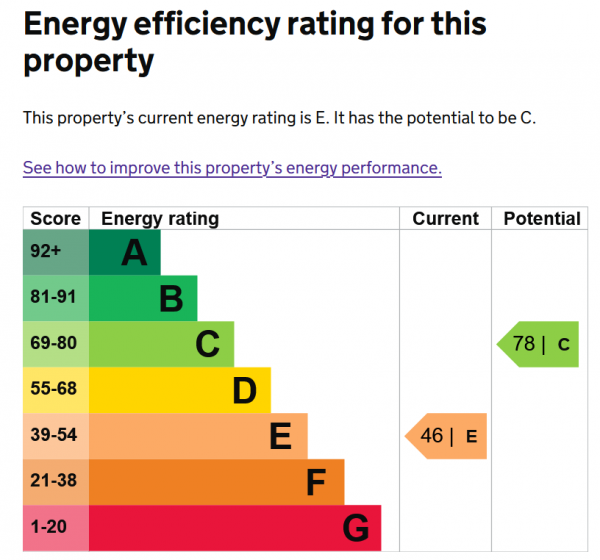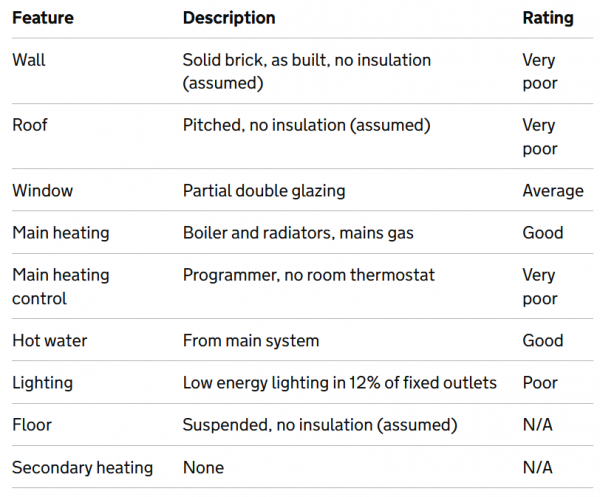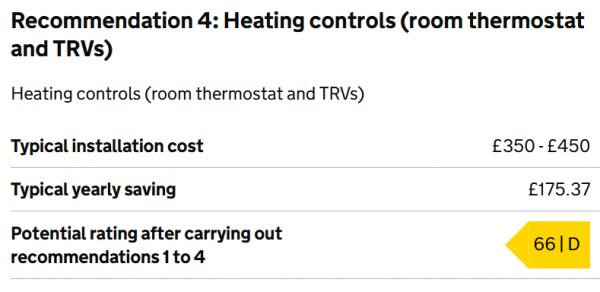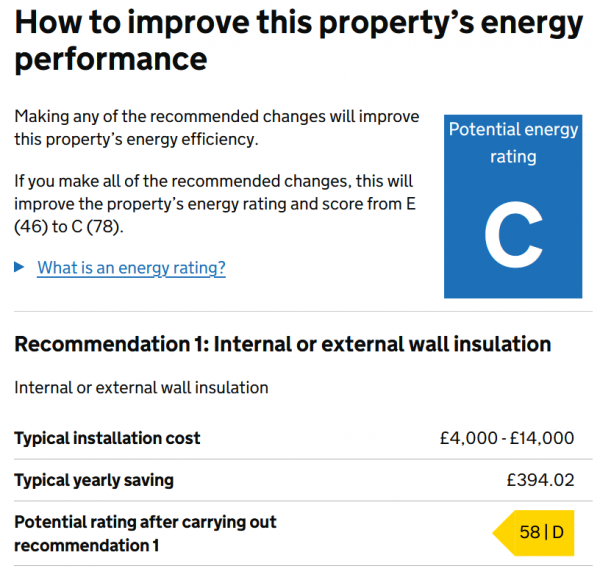 - minute read
- minute read
The UK government is now aiming for all rental properties to have a minimum Energy Performance Certificate (EPC) Band C by 2030. Achieving this EPC rating might seem daunting, especially to those new to the private rental sector, but Resooma outlines the key things you need to know about EPCs.
We’ve simplified it and created a walkthrough to what an EPC is, how you can improve your property’s EPC rating, and additional information to keep you in the loop.

An EPC rates a property based on how energy efficient it is. Properties are rated from A (most efficient) to G (least efficient) and include a number. The higher the number rating, the more energy efficient the property is.
The Minimum Energy Efficiency Standards (MEES) ensures properties have an EPC rating of E or higher. Properties rated F or G cannot be let unless the landlord has applied for an exemption.
EPCs include information on the property’s energy use and typical energy costs. They also recommend how to reduce energy use and save money while doing so. EPCs are valid for ten years.
If you’ve marketed your property to let or modified it in the past ten years, you may require an EPC. You must improve a property’s EPC rating to E or register for an exemption before letting new tenants.
After applying for an EPC, you’ll be able to find it online through the EPC register alongside other properties. You’ll be asked what type of property you want an EPC for and your postcode, where it will give you a number of assessors local to your property’s area.
The online register holds other properties’ EPCs that you can search for. Renters and tenants can search for your property’s EPC and compare it with different properties. It’s useful for landlords too, so they can understand how other properties perform in their EPCs.
Resooma is currently developing a new feature to use alongside our listed properties. This feature will allow users to see a selected property’s EPC rating, access the full certification, and compare an area’s average energy efficiency. Resooma also plans to provide a full breakdown of listed properties’ energy efficiencies and extra information for tenants, so keep an eye out for more updates!
To gain an EPC rating for your property, you need to find an accredited assessor and book a property assessment. Depending on the property’s size and assessor, assessment costs can vary. Range from £60 to £120. The gov.uk website can help you find assessors local to your property’s area, and will provide contact details for you to get in touch about assessments.

EPCs will include a list of the property’s features, descriptions, and ratings from very good to very poor as shown above.
In some descriptions, you’ll find ‘assumed’ is written underneath them. ‘Assumed’ means the assessor couldn’t inspect the features, and therefore, has made an assumption based on property type and age. It’s important to remember some numbers will be estimated, so they won’t reflect what inhabitants use.
EPC’s also provide recommendations to improve your property as well as break down average costs of improving your EPC rating. EPCs also measures primary annual usage of lighting, hot water, and heating, which is great to estimate how much the property’s operating costs will be.
Yes! There are several grants you can avail of to help improve your energy performance rating. You will never have to spend more than £3,500 (including VAT) when improving energy efficiency in your property.
There are three ways you can fund improvements for your EPC rating.
Funding includes:
The UK Government has more information on each grant and can point you in the right direction where your local council can help you.
You can use this option if third party funding is less than the cost cap of £3,500 and not enough to improve your property to an E rating.
Landlords can fund the costs of improving your property yourself. You don’t have to spend up to the cost cap so long as you have improved your rating to E. You can register for an exemption if it costs more than the cost cap to improve your property’s rating. It’s advisable to implement all recommendations then register for an exemption.

Recommendations will often include the average cost of improving a feature as well as the annual cost of saving.
As said above, if you cannot improve your EPC rating to E or within the £3,500 cost cap, you can apply for an exemption. You’ll need to provide a property address, the type of exemption you’re registering for, and a copy of a valid EPC.
You can register for the following exemptions:
Remember, when registering for the exemption, you’ll need the type of exemption you’re applying for, your property address, and a copy of a valid EPC. Each exemption has conditions you must meet before you can register for them. For more information on exemptions, you can check out the guidelines here.

It is essential to look at your EPC rating seriously. The UK Government has passed new legislation that all rented homes must have a minimum of EPC Band C by 2030. By making minor improvements now, you’ll save yourself from scrambling to meet the minimum EPC rating later.
In a world wracked by climate change, it’s crucial now more than ever to examine the way we live. Energy companies are now making a conscious effort to provide renewable energy to properties. Ultimately, by making changes to your property, you’ll contribute to protecting our environment. The average household in the UK produces 6 tonnes of carbon dioxide emissions, one of the most significant contributors to climate change. You could significantly reduce carbon emissions by switching to low energy lighting, installing thermostats, and replacing your boiler. With renters more conscious about this issue than ever, having a good EPC rating for your property will ensure better tenant demand.

Some bills inclusive services, like Resooma Bills, provide 100% renewable energy as part of utilities. With us, not only will you be doing your part for the environment, but you can increase your profit margin by £10,200 annually. You’ll be implementing a long-term strategy that benefits you and your tenants while lessening the stress of handling rent and utility bills.
The EPC rating is a great way to examine how efficient your properties are and help implement change. Not only will it be possible to save money and increase profit, but you will also contribute to combating climate change. For more information on how Resooma Bills can help you achieve this, you can find more information here. If you’re interested in the benefits of listing with us, we tell you about them right here. Check out gov.uk for further guidance on EPCs.



All your utility bills in one monthly payment, split between housemates
Get a quote


All your utility bills in one monthly payment, split between housemates
Get a quoteFinding his article helpful? We’ve got plenty more helpful articles on there way. Join our Savvy Sunday mailing list